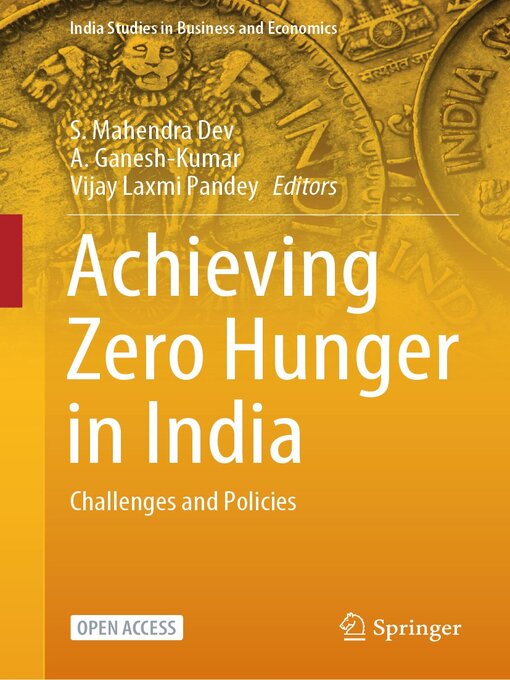This open access volume discloses rich set of findings and policy recommendations for India towards achieving the SDG 2.1 target of zero hunger by 2030. Through its fourteen chapters, it takes an integrated approach by examining diverse aspects of food and nutrition security through multidisciplinary lens of Agricultural Economics, Nutrition, Crop Sciences, Anthropology and Law, while being rooted in economics. The chapters reflect this diversity in disciplines in terms of the questions posed, the data sets used, and the methodologies followed. Starting from the evolution of policy response for hunger and nutrition security, the book covers aspects such gender budgeting, dietary diversity, women's empowerment, calorie intake norms, socio-legal aspects of right to health, subjective wellbeing, bio-fortification, crop insurance and food security linkages, interdependence of public distribution system (for food security) and employment guarantee schemes especially during COVID-19 pandemic, effects of dairy dietary supplements, and so on. With its rich discussions, the book is compelling for students, researchers, policy makers, development professionals and practitioners working in areas of food and nutrition security, SDGs, in particular SDG1, SDG2 and SDG5, and sustainable food systems.
- What's new?
- Always Available YA Audiobooks
- No wait, no problems
- Popular titles
- Check these out!
- See all audiobooks collections
